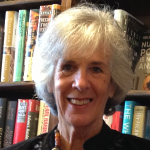Please find below the
Finalist Evaluation
Judges'' comments
Proposal: Sustainability2020 QUIZ An Online Residential Energy Challenge & Call to Action Contest: Fostering Climate Collaboration in Boulder, CO 2016 Thank you for your contest entry. Thank you for your contest entry. We appreciate your willingness to share your ideas and also the time and effort you put into developing a proposal and submitting it to the contest. We have reviewed your proposal and found that it contained intriguing elements; however, have chosen not to advance it to the next round of competition. We encourage you to keep developing your idea. Transfer your proposal to a Workspace to re-open it, make edits, add collaborators, and even submit it into a future contest. You can do so by logging into your account, opening your proposal, selecting the Admin tab, and clicking “Move proposal.” We welcome you to stay involved in the Climate CoLab community: support and comment on proposals that have been named Finalists, and vote during the public voting period to help select the contest’s Popular Choice Winner. Climate CoLab will be opening more contests throughout the year and you are welcome to submit your proposal to those contests as well. Keep up the great work. We hope that by working together, we all can create solutions that wouldn’t otherwise be possible. Sincerely, Contest Fellows If there are additional comments from the Judges & Fellows, they will be included below.
Thank you for your submission! Unfortunately, it feels like this isn't getting to the root of the collaboration issue in Boulder. Best of luck in the future!
Semi-Finalist Evaluation
Judges'' ratings
| • | Novelty: | |
| • | Feasibility: | |
| • | Impact: | |
| • | Presentation: |
Judges'' comments
Feedback from the judges:
Strengths:
Very tangible and measurable project to track energy consumption at the household level while engaging the next generation. It seems the project has a good chance of getting funded from the City of Boulder due to the value of the data.
Valuable as an educational tool in which kids will encourage their parents into evaluating energy efficiency opportunities.
Challenges:
Unclear how this project will build connectivity and community engagement. This piece would need to be further developed. How does this fit in with existing programs at the schools? Would teachers be expected to administer the project?
Will residential data compel communities to adopt this program? It seems that there is enough data regarding home energy use and the benefits of energy savings technology that we already know the most practical investments.
 Alexia Parks Mar 2, 2016 09:13 | Proposal creator We are honored by this selection as a Semi-Finalist by the Climate CoLab Team. Yes, we will add new collaborators and respond to the feedback related to challenges and incorporate it into the proposal. A brief response follows: Sustainability 2020 offers a program and a deadline, by the Year 2020. It will "build connectivity and community engagement" in several ways including: (1) Inviting members of local organizations such as the Chamber of Commerce, Rotary Clubs, and other businesses to provide special discounts, samples, and free items for participating students and their families. For example: McGuckin's Hardware (or Home Depot) might offer a specially packaged box of home insulation supplies at a discount price. (2) Interested college students, community members (PTA/PTO, for example), and educators can apply to receive free facilitator training so that - where scheduled - the program can run K-12 with age appropriate curriculum. (3) We will solicit the timely approval of educators, schools, and school district. Private schools, faith-based and boarding schools may respond independently to this opportunity. (4) Boulder Valley School District (BVSD) Sustainability Director Ghita Carroll has expressed interest in the program. Superintendent Bruce Messenger, Board Members, and others are also aware of this pending opportunity. I personally was asked by a member of the BVSD school board to send more information about the program a few months ago. It is designed to rapidly scale. Finally, you asked: "Will residential data compel communities to adopt this program?" In short: What communities lack is utility specific data tied to individual home energy use. Our goal is for students and their families to add this level of data. Communities can then make bulk purchases of energy saving products, services, and technology and provide these discounted, low cost or free, to homes as needed. Currently, only about 4% of homeowners who are provided with free home energy audits take corrective action. Thus, the City may gain information about an individual home's energy use, however, what is lacking is corrective action. Sustainability 2020 engages families to take green actions to become more energy smart and resilient by inspiring and empowering their K-12 children as environmental leaders. Again, thank you for this honor to serve the community! Alexia Parks |
